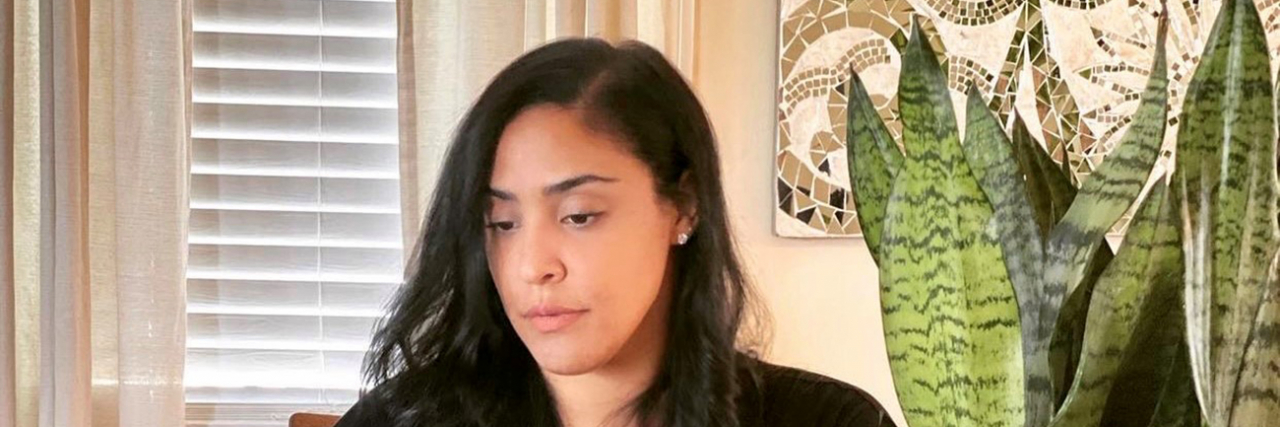My diagnosis of neuromyelitis optica spectrum disorder (NMOSD) was like a box of chocolates; I never knew what I was going to get. I had no clue what NMOSD — a rare, lifelong, and debilitating autoimmune disease of the central nervous system — was, let alone what was to come with it. My initial reaction was shock and confusion. I couldn’t wrap my head around a lifelong disease that has no cure. I was diagnosed with a demyelinating disease that has no end? It was impossible to understand that this “problem” can’t be fixed, and denial kicked in. All sorts of emotions ran through my body and took over my feelings. While I had days where I just cried all day because I didn’t know what I was confronting, I also had days when I was simply happy to be laughing with my family.
In a way, this was the start of getting to know my level of emotional intelligence and the handling of my emotions. As a mother of two young boys who couldn’t understand what their mommy was going through, I had to hide a lot of my emotions for them and mask up. I started acting the same toward the world that surrounded me and ignored conversations about my health. I started lying to people about the limp in my walk, the wet pants from bladder incontinence, the crutches from a fall, and so much more.
One day I ran into an old friend from middle school who almost crashed into me. Both in shock from the years we hadn’t seen each other and the fact he almost crashed into me, he was worried and asked me about my appearance (as I walked with crutches toward my car). As usual, I lied and said I was recovering from an accident. I lied so often about how NMOSD physically affected me. That night I came home emotional and tired of lying about my health, my condition, my life. After that encounter, I swore I would never lie again and told my husband I was done. We had a long conversation about honesty between me and the world. He encouraged me to tell people about my condition in the hopes that one day I could inspire someone else.
In September 2019, I decided to step out of my comfort zone and started sharing my story online. I started a YouTube channel (FabNMO) where I shared my story in English and Spanish. I was completely shocked by the number of people who responded to me, people from Spain, Mexico, Chile, Brazil, Australia, the U.K., India, and many more countries. It was overwhelming. It was then that I realized I am fortunate to live in a country that has available treatment options. I started sharing my experience with different treatments with the world and exchanging messages with people like me. It was a beautiful feeling to be understood and help others.
Then COVID-19 hit and suddenly we were all stuck at home. I became a schoolteacher to my children, and I paused YouTube. I started really connecting with people through my Instagram with my day-to-day sharing on handling parenting with NMOSD amidst a pandemic. It was like I found a new community every week on new issues with NMOSD. I started building personal friendships with people who had NMOSD through social media and by exchanging phone numbers. It was incredible how deep these connections were, but I think it was because we all needed someone to truly understand what NMOSD really is.
I knew what a community was but never really felt a part of one until I started FabNMO. NMOSD changed my life and brought me closer to others that were going through the same things. I’ve made great friendships, great connections, and built a great support system. And social media groups that strive to provide inclusivity within the NMOSD community have made a big difference. Engaging in these groups and support systems starts with you!
Remember that you are in charge of your journey with your diagnosis and your voice, so use it to speak up. Make it known to those around you that living with a rare disease is the new way of living for you. Do what you need to do to find comfort in your journey with your rare disease. There is a whole online community waiting for you. Know you are not alone and that most people who are going through such diagnoses are looking for a person just like you.
Adapting to your new lifestyle is a matter of finding acceptance within yourself, finding your niche, and creating opportunities for growth in ways you could have never imagined. I personally know how hard it is to live with NMOSD, but I’ve adapted. I’ve always said that living with a demyelinating disease is not a death sentence, more like a constant reinvention of an adaptive lifestyle.

